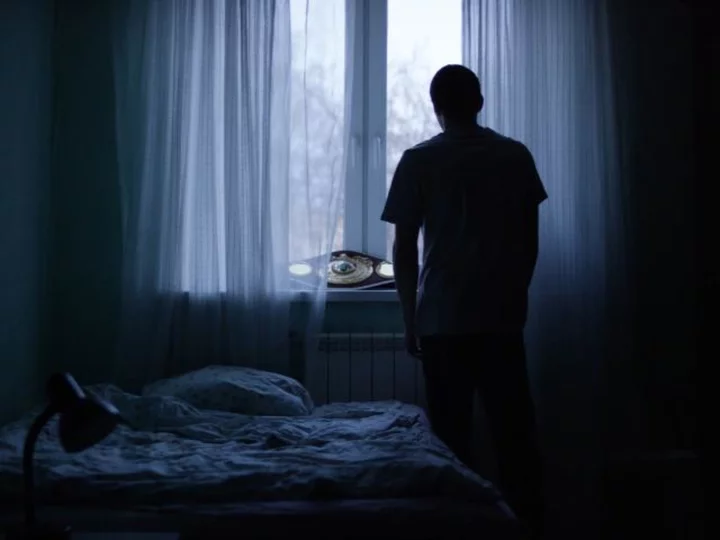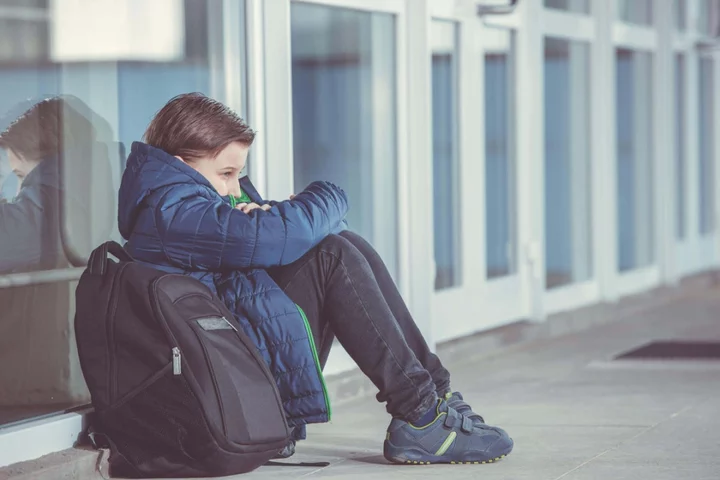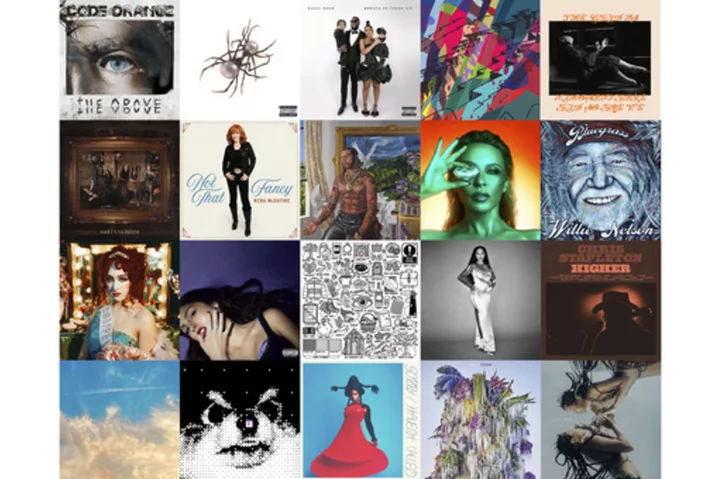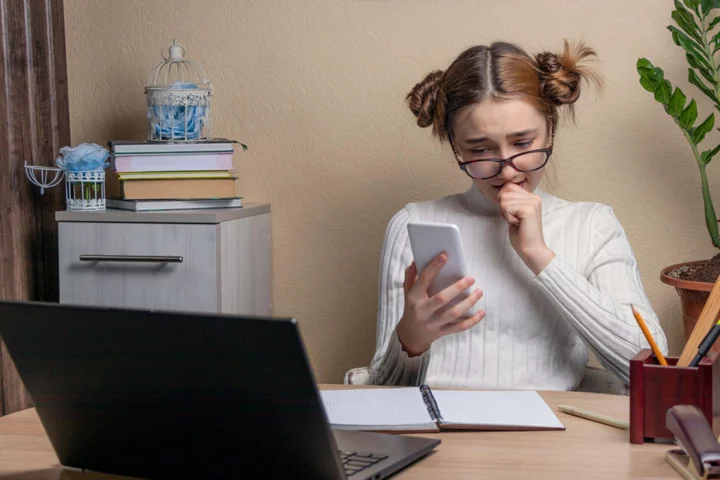
Linda Evangelista says she views mastectomy scars as ‘trophies’ following recent breast cancer diagnosis
Linda Evangelista has opened up about how she’s maintained a positive perspective following her recent breast cancer diagnosis. This week, the 58-year-old supermodel revealed that she was diagnosed with breast cancer twice within the last five years. In an interview with Vanity Fair, Evangelista shared how she’s celebrating her life now after several years of health battles. “I’m in full celebration mode right now,” she told the outlet on 7 September. “I’ve had some health struggles and everything now is just a celebration.” The Canadian model first discovered she had breast cancer in 2018, after it was detected during her annual mammogram. She elected to undergo a bilateral mastectomy, a surgery done to remove both breasts as a way to treat cancer. Evangelista then felt a bump on her chest in July 2022, which she soon learned was cancer of the pectoral muscle. One year later, Evangelista has shared that she’s feeling healthier than ever and continues to find motivation in all aspects of her daily life. “I am very positive. It’s the new me,” she told Vanity Fair. “I think going through hardships and coming through the other end has made me focus only on the good things. I’m so happy to be alive. I know I am very fortunate.” While discussing her subsequent diagnoses, Evangelista revealed that she wasn’t concerned how the multiple surgeries to remove the cancer would impact her appearance. “I never felt like my breasts defined me as a woman,” she said of the bilateral mastectomy, which left scars across the skin of her chest. “I have always viewed scars on the body from surgeries, from disease, as trophies. They are like gold and shiny and should be on a mantle. It shows you won,” Evangelista added. “I think scars are to be celebrated and not to be looked at as bad and ugly. It makes you stronger.” Speaking to WSJ Magazine earlier this week, the Vogue cover star spoke about her private battle with cancer for the very first time. As to why she had kept “quiet” about her cancer diagnosis for so long, Evangelista admitted that she’s “not one of those people who has to share everything”. “I thought to myself, I will share this one day but while I am going through it, absolutely not,” she continued. “I don’t want the Daily Mail waiting outside my door like they do every time something happens. ‘Linda seen for the first time since blah blah blah.’” Evangelista explained that she decided to have a bilateral mastectomy to remove the cancerous breast tissue in 2018 because the “margins were not good” but she didn’t want to “deal” with undergoing cancer treatment. Four years later, she felt a bump on her chest and received an MRI scan. While she said her radiologist wasn’t initially concerned when she felt the bump, she noted that once the MRI was done, her doctor quickly ordered a biopsy. After discovering she had cancer in her pectoral muscle from the biopsy, Evangelista recalled saying to her doctors: “Dig a hole in my chest. I don’t want it to look pretty. I want you to excavate. I want to see a hole in my chest when you’re done. Do you understand me? I’m not dying from this.” Read More Linda Evangelista reveals she was diagnosed with breast cancer twice within last five years Linda Evangelista makes rare comment about co-parenting with son’s stepmother Salma Hayek Linda Evangelista says she still gets botox after CoolSculpting procedure that left her ‘disfigured
2023-09-09 00:18

How to get help for someone who might be suicidal
A suicide occurs once every 11 minutes. Recognize the warning signs and see how to get help. Free 24-hour help is available.
2023-09-08 22:48

India or Bharat? A dinner invite sparks speculation as Modi's ministers push to rebrand the country
India, the host nation of this year’s Group of 20 summit, has two official names
2023-09-08 20:49

Hail ... Santa? 10 Songs That That May (Or May Not) Include Hidden Messages
The Beatles helped bring backmasking to the mainstream, but here are a few classic tracks that may (or may not) feature hidden messages, too.
2023-09-08 20:24

This is why you have weird dreams in the heatwave
Everyone has a theory about their dreams and the science or meaning behind them. And when the weather hots up, the more bizarre they tend to get. “Dreams are a fascinating and enigmatic phenomenon that occur during sleep, encompassing a vast realm of imaginative experiences,” says sleep expert and CEO of MattressNextDay, Martin Seeley. “They are a collection of thoughts, images, sensations, and emotions that unfold within the theatre of our minds.” Why do we dream? When we sleep, our brain enters a complex state where it engages in various cognitive processes, explains Seeley, including memory consolidation, problem-solving and emotional regulation. “Dreams are thought to emerge from these processes, weaving together fragments of memories, desires, fears, and subconscious thoughts into a narrative or non-linear sequence,” adds Seeley. “And they can be surreal, vivid, or mundane, blurring the boundaries between reality and fantasy.” While the precise purpose and meaning of dreams remains a subject of exploration and debate, Seeley says they can serve as a portal into the inner workings of our minds: “Providing a canvas for exploration, processing of emotions, and glimpses into the subconscious depths of our psyche.” Why do we dream more when it’s hot? Lisa Artis, deputy CEO of The Sleep Charity, says: “When the weather is hot, it can disrupt our sleeping patterns, making it difficult to fall asleep in the first place – and causes us to wake more often during the REM (rapid eye movement) sleep phase.” REM sleep is where we experience intense dreaming, explains Artis – so waking during or at the end of this cycle can mean we are more likely to remember our dreams. “Dreams happen regularly, but are often forgotten and our mind’s way of unpacking the day’s events, dealing with stress and sorting through our day-to-day thoughts,” notes Artis. Our body heat generally peaks in the afternoon then starts to drop over an evening to prepare us for sleep, says Artis. Melatonin, the sleep hormone, is produced when this happens.“An ideal temperature is around 16-18°C and anything around the 24°C mark can cause restlessness,” says Artis. “So, it’s no surprise that when we’re experiencing a heatwave with temperatures reaching over 30°C, it affects our sleep.”Can a heatwave really make dreams more surreal? The connection between heatwaves and the content or nature of dreams is not fully understood. However, there may be a few possible explanations if your dreams seem weirder when the weather heats up – although Seeley points out these are all speculative. First off, he agrees it may have a lot to do with the fact we’re less comfortable and waking more when it’s hot. “These frequent awakenings can interrupt the normal sleep cycle and result in a higher probability of remembering dreams, including the more unusual or vivid ones,” he notes. “So, during a heatwave, the increased frequency of waking up during the night might contribute to a greater recall of strange or funky dreams.” Secondly, the body’s physiological response to heat may influence brain activity, he adds: “Heat can affect neurotransmitter levels, such as serotonin and dopamine, which play a role in regulating mood and emotions. These alterations in neurotransmitter activity might impact the content and emotional tone of dreams, potentially leading to more surreal or bizarre experiences.” Psychological factors could also play a role. Heatwaves can cause restlessness and increased stress levels in some individuals. Seeley adds: “Stress and emotional fluctuations can manifest in dreams as strange or unusual scenarios, as the mind processes and attempts to make sense of these experiences.” Can we stop strange heatwave dreams happening? While it’s probably not possible to completely control the content of our dreams, there are certain strategies you can try to promote better sleep – and potentially reduce the likelihood of experiencing a restless night and unusual dreams during hot weather. Create a cool sleep environment: “Use fans, air conditioning, or open windows to circulate cool air in your bedroom – and consider using lightweight, breathable bedding materials,” says Seeley. Stay hydrated: “Drink enough water throughout the day to prevent dehydration, especially during hot weather,” he continues. “Being adequately hydrated can help maintain a balanced sleep cycle.” Practice relaxation techniques: “Engage in activities that promote relaxation before bed, such as deep breathing exercises, meditation, or taking a warm bath,” suggests Seeley. “These practices can help calm your mind and promote a more restful sleep.” Read More Charity boss speaks out over ‘traumatic’ encounter with royal aide Ukraine war’s heaviest fight rages in east - follow live All the times Kate has channelled the late Queen’s style since her death It’s not just dry skin: 5 things everyone needs to know about eczema YouTube begins verifying videos by UK doctors to tackle health misinformation
2023-09-08 17:45

What should you do if you think your child is being bullied at school?
As well as being exciting, the start of a new school year can be very scary for some kids – as the toxic dynamic between bullies and the children they target could resume. The prospect of a new year of bullying, or the first experience of being a target for school bullies, can blight the lives of pupils and become something that terrifies both them and their parents, who are often unaware of the persecution of their child. Indeed, new research by the anti-bullying charity The Diana Award for its #BacktoBullying campaign has revealed 65% of children are scared of going back to school, with a third saying the thought of returning to school makes them want to cry. And it’s not just the kids who are scared – the study found half of parents dread sending their children back to school due to bullying. “When the new school year starts it can be an exciting and sometimes unsettling time for children,” points out Martha Evans, director of the Anti-Bullying Alliance (ABA). “There will be new pupils, new class groupings and, for some, new schools. It can be a worrying time and we’re often told friendships and bullying are high on the list of worries. “Parents should be aware of the signs that their child might be on the receiving end of bullying behaviour, and know how to respond.” Evans says research suggests being bullied can have serious implications for a child’s life chances, with the effects often lasting into adulthood. That’s why anti-bullying training and programmes for schools, including Anti-Bullying Week (November 13-17), are so vital for schools to help tackle the problem. Evans says it’s useful for parents who are concerned about bullying to understand exactly what bullying is, as “it’s not just ‘falling out’ or ‘banter’”. The ABA defines bullying as: “The repetitive, intentional hurting of one person or group by another person or group, where the relationship involves an imbalance of power. Bullying can be physical, verbal or psychological. It can happen face-to-face or online.” What are the signs of bullying? Children might not want to talk about what’s going on, but Evans says warning signs of bullying may include… Coming home with torn clothes or missing belongings. “This could show your child is being picked on physically,” says Evans. Unexpectedly not wanting to go to school. Evans points out that while most bullying starts face-to-face at school, it often then goes online, too. Complaining of unexplained illnesses or headaches. “The stress of bullying can create physical symptoms, or the child may make up illnesses to avoid being bullied at school,” warns Evans. Becoming quiet and withdrawn. Evans says worrying about hurtful behaviour can cause deep anxiety, and children may look upset when they use their electronic devices. “Online bullying is particularly hurtful,” explains Evans, “as it follows a child even after they’ve left the school gates and can continue 24/7.” Children who are being bullied may want to leave for school much earlier than necessary or come home late, says Evans. “Avoiding other children arriving or leaving school is a sure sign something is wrong,” she points out. What should you do if your child is being bullied? Stay calm Evans says it’s important to keep your cool, even though you’re probably feeling angry and upset that your child is being targeted. “You should focus on gently speaking to your child and listening carefully,” she explains. “Your job is to reassure them that it can be sorted out.” Get the facts Talk calmly to your child and establish what’s happened and who did what, and when. Evans advises parents and children to keep a diary of when the bullying happens, and explains: “It will be useful to see the pattern of bullying over time and to share with the school, if and when you speak to them.” Tell them not to retaliate Evans says parents shouldn’t encourage their child to retaliate to bullying, especially through violence, as it can have negative and unpredictable results. “They may be hurt even further, or be seen by those in authority as the problem,” she warns, and suggests instead that parents tell them to walk away and get help. Be aware of mental stress Don’t underestimate the effect bullying can have on a child’s mental health and keep an eye out for warning signs. “Bullying can have a considerable impact on a child’s mental health,” warns Evans, “so if your child is showing signs of serious distress, such as depression, anxiety and self-harm, always see a GP.” Find out what your child wants Parents should ask their child what they want to happen next, advises Evans, and help them to identify their choices, the potential next steps to take, and the skills they have to help stop the bullying. Speak to the school Ask to see the school’s anti-bullying policy, so both you and your child know the process for getting things sorted out, advises Evans. Don’t let them blame themselves Sometimes children can think they’re to blame in some way for being bullied, but Evans stresses: “Make it clear that bullying is never acceptable and if a child or young person is being bullied then it’s others who are to blame, not them.” Read More Charity boss speaks out over ‘traumatic’ encounter with royal aide Ukraine war’s heaviest fight rages in east - follow live What women should do if they experience violence online Athlete who ran over 200km through the desert shares advice for running in a heatwave Women being invited to help shape the future of reproductive healthcare – from period pain to menopause
2023-09-08 15:15

Is it India? Is it Bharat? Speculations abound as government pushes for the country’s Sanskrit name
India, the host nation of this year’s Group of 20 summit, has two official names
2023-09-08 13:16

Elon Musk reveals names of his twins with Shivon Zilis
Elon Musk has revealed the names of the twin children he shares with Shivon Zilis. In an excerpt of Musk’s upcoming biography, published by Time Magazine, author Walter Isaacson wrote that the Tesla CEO, 52, and the Neuralink executive, 37, named their 16-month-old twins, Strider and Azure. On X, formerly known as Twitter, the author also shared the first photo of the family together, with Strider seen pictured sitting on his mother’s lap while Azure was perched on her father’s. Musk and Zilis reportedly welcomed twins Strider and Azure in November 2021, but the news didn’t make headlines until July of the following year. According to Isaacson, although Zilis has been Musk’s “intellectual companion on artificial intelligence since the founding of OpenAI eight years earlier” and shares children with the X owner, the duo are not in a romantic relationship. Reuters reported that Zilis had allegedly confided in colleagues that the twins were conceived via in-vitro fertilisation. Earlier in 2021, Musk also welcomed a baby girl named Exa Dark Sideræl, who goes by Y, with ex-girlfriend Grimes. The couple secretly welcomed the child via surrogate. The “Oblivion” artist and Musk also share a three-year-old son, X AE A-XII, whom they welcomed in May 2020. X’s initial name, X AE A-12, did not follow California guidelines so the couple was forced to comply and made the change. According to Page Six, after three years together, the pair reportedly “semi-separated” in September 2021 before Exa’s arrival. In addition to the children he shares with Zilis and Grimes, Musk also fathered 19-year-old twins Vivian Jenna Wilson and Griffin, along with triplets Kai, Damian, and Sax, with his first wife, Justine Wilson. The triplets were born in 2006, while the twins were born in 2004. According to court documents obtained by TMZ, Vivian, who is transgender, publicly disavowed her father in a petition that asked for a new birth certificate to be issued by the state. In the documents, she wrote that the reason behind her name change was not only her new “gender identity” but also because of “the fact that [she] no longer lives with or wish to be related to [her] biological father [Elon] in any way, shape or form”. According to Musk’s biographer, the tech entrepreneur “was generally sanguine” about his daughter’s transition, but political ideology is what ultimately divided them. "I’ve made many overtures," Musk told Isaacson about his alleged atempts to mend his relationship with his daughter. "But she doesn’t want to spend time with me." Read More First photo emerges of Elon Musk and his baby twins with Neuralink director Elon Musk thwarted Ukrainian drone attack on Russian ships, book claims
2023-09-08 04:16

Your Expired At-Home COVID-19 Test Might Not Be Expired After All
Don't throw away that expired nose swab kit just yet.
2023-09-08 03:56

Fall music releases: Pop powerhouses, country classics, hip-hop heavyweights and beyond
Music fans, it is time to bid adieu to the sunny, slow summer months
2023-09-08 02:20

10 Damn Fine Facts About David Lynch
The iconoclastic director behind ‘Mulholland Drive,’ ‘Twin Peaks,’ and more cult classics once drew a comic strip about a furious dog and dislikes large furniture.
2023-09-08 02:15

What women should do if they experience violence online
More than one in 10 women and girls in the UK’s four nations has been a victim of online violence, new research has found. Online violence can includes abuse, unwanted sexual remarks, trolling, threats, and non-consensual sharing of intimate messages and photos. The online YouGov survey, said to be the biggest so far into the issue, found 17% of the women and girls surveyed in Wales and Scotland have experienced online violence, as well as 15% in England and 12% in Northern Ireland. Researchers from the Open University said the findings show the problem is “widespread”. The data came from the 7,500 people aged 16 and over – 4,000 women and girls and 3,5000 men and boys – earlier this year. It also highlighted that online violence was higher among for those aged 16-24 (25%) and for LGBT+ women and girls (35%). The most commonly perceived reasons for why people commit such online violence were the anonymity provided by being online (49%), ease of getting away with it (47%) and misogyny (43%). So what can you do if you’re a victim of online violence? Trolling According to the Crown Prosecution Service, trolling is “a form of baiting online which involves sending abusive and hurtful comments across all social media platforms”. Trolls can be found everywhere on the internet, including forums, blogs, websites and social networks. “Don’t respond,” said Ruth Peters, solicitor and director at criminal defence firm Olliers Solicitors. “Trolls are looking for a reaction. Their aim is to upset and provoke you into making an angry/emotional response. Whilst you can’t prevent a troll from targeting you, you can decide how you choose to react. If you choose not to respond to the abuse, trolls generally give up and go away.” If you are being bullied online or receiving abusive comments, Dr Angela Wilcock, a senior lecturer in criminology at University of Sunderland thinks it’s important to tell a family member or a close friend, so you don’t feel alone and have can their support. The Online Safety Bill (which is expected to be passed at the end of this year) to protect women and girls is key, said Wilcock, “along with education from a young age. Women are continually having to risk assess and protect themselves, but we are not dealing with the perpetrators”. She added: “If women and girls do experience online violence, they must tell someone and seek help immediately from specialist services. To make themselves safer, they can also ensure social media privacy settings are activated.” Don’t forget to record, report and block trolls too. Peters noted. “If someone makes an offensive post, take a screenshot or print the post so that you have proof of it if necessary. “Ask the website moderator, administrator or owner to intervene if the troll doesn’t stop. Most websites/social network platforms have strong anti-abuse policies and, in most cases, trolls are guilty of violating their terms and conditions so will have their accounts terminated. “It’s OK to block those whose behaviour makes you feel uncomfortable and blocking someone on social media is easy.” Threats and abusive communication Set out under the Communications Act 2003 and the Malicious Communications Act 1988, malicious communications can include cyberbullying, harassment online or homophobic, racist, transphobic or misogynistic hate speech. Under section 127 of the Communications Act 2003, it is an offence for someone to send a message that is grossly offensive or indecent, obscene or menacing character. “The message does not need to actually reach the intended victim – the act of sending the message is sufficient,” Peters said. “A ‘message’ will cover all forms of messaging so this can mean a text, email, Facebook message, an internet forum, Snapchat message or picture, etc. Any image or message which has been sent electronically will be covered by this act.” Glitch, a UK charity aiming to end online abuse and championing digital citizenship, with a specific focus on black women and marginalised people, published its 2023 Digital Misogynoir Report in July. The findings “illuminate the ways misogynoir shows up in online spaces; the way it spreads and intersects with other forms of white supremacy; and, most disappointingly, how it is still missed in content moderation by tech platforms”, according to founder and CEO, Seyi Akiwowo, “Tech companies must take responsibility for the ways their ‘build first, think later’ approach actively harms black women – online and offline. “And while the pressure we’ve been applying to the UK government has resulted in the welcome and necessary addition of women and girls to the Online Safety Bill, the government has a responsibility to hold tech companies to consistent account for the violence their platforms enable.” Non-consensual sharing of intimate photos and messages In April 2015, the Criminal Justice and Courts Act (CJCA) 2015 made ‘revenge porn’ a specific offence, and it became a crime to “disclose private sexual photographs and films; without the permission of the individual who appears in the photograph or film; with intent to cause distress”, Peters said. “[But] stronger regulation is also proposed surrounding the sharing of sexual images without consent.” The Online Safety Bill, currently progressing through the House of Lords, seeks to specifially criminalise similar offences to revenge porn. “These include sharing ‘deepfakes’ (explicit images which have been altered to look like someone) without consent,” Peters said. “Stronger regulation is also proposed surrounding the sharing of sexual images without consent. The current law requires intention to cause distress in order to be found guilty of this offence, [but] the proposed changes will amend this in order to prosecute more people.” She added: “There will be a ‘base offence’ for sharing intimate images without consent. There will be two more serious offences created if images are shared to cause humiliation, alarm or distress, or for sexual gratification.” But for Wilcock, “women shouldn’t have to ensure our profiles are closed off to the world just so that we don’t endure abuse from trolls and abusers. “It shouldn’t be this way, but that is the sad reality of today’s online world. Until we do more to hold perpetrators to account and deal with them appropriately, it is hard to see how it will get better for victims.” Read More Charity boss speaks out over ‘traumatic’ encounter with royal aide Ukraine war’s heaviest fight rages in east - follow live Athlete who ran over 200km through the desert shares advice for running in a heatwave Women being invited to help shape the future of reproductive healthcare – from period pain to menopause How to style your home like a professional
2023-09-07 22:29
